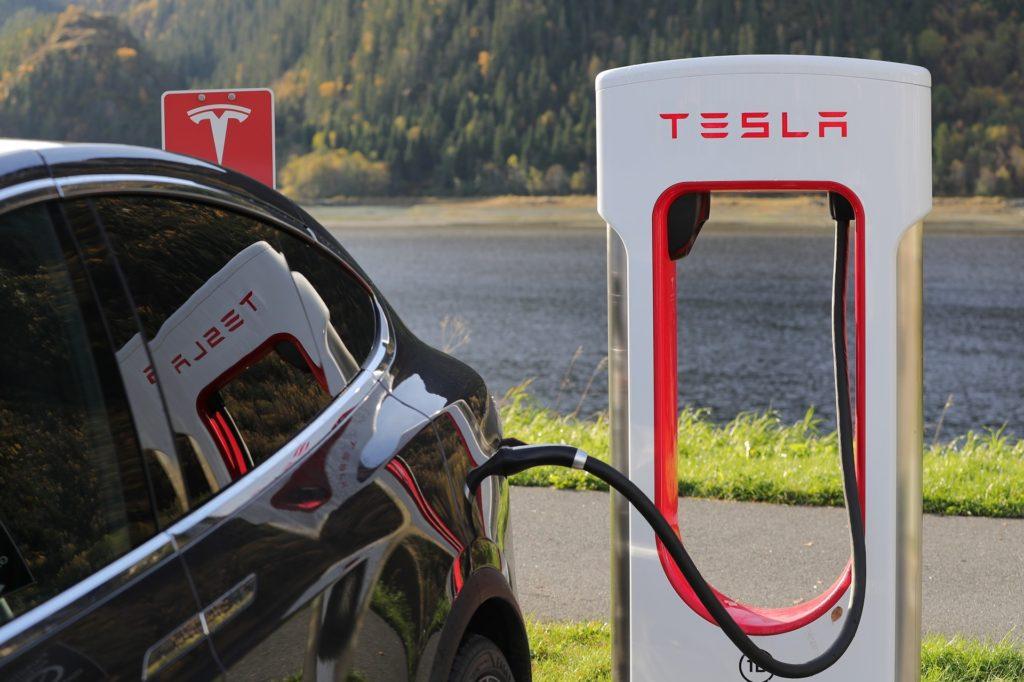Tesla Autopilot: Autonomous Vehicles & the Law

Autonomous Vehicles have the potential to dramatically alter the legal landscape. Although traffic stops are not systematically tracked around the country, it is reported by OpenPolicing.Stanford.edu that “Police pull over more than 50,000 drivers on a typical day, more than 20 million motorists every year.” Further, in 2017 alone, the National Highway Traffic Safety Administration reported that there were an estimated 6,452,000 police-reported motor vehicle crashes in the United States, resulting in 37,133 fatalities and 2,746,000 people injured. How will these numbers be impacted by Tesla Autopilot and the rise of autonomous vehicles?
Motor Vehicles and the Legal System
From traffic and criminal courts, to civil and probate courts, our justice system is saturated with cases that originate from police interaction with motorists and motor vehicle crashes. From wrongful death cases, to worker’s compensation claims, to drug and weapons charges, there is a wide variety of cases involving motor vehicles.
Tesla & Autonomous Vehicles

Tesla & Autonomous Vehicles
We live in an age of rapidly accelerating technological advancement. We are on the precipice of another significant modification to our everyday lives. I have followed with great interest the progress being made by Elon Musk and Tesla over the years with respect to autonomous vehicles. The roll-out of their hardware and software is methodical and remarkable. Their current vehicles, as of April 2019, offer Autopilot and “Full Self-Driving Capability” which has been interpreted to mean that the hardware and processing power within the onboard computer are capable of full self-driving and that as the system improves and regulatory agencies allow for it, software updates will be released that will continue to expand the autonomous capabilities of the fleet. It is not a matter of if Tesla vehicles will be fully autonomous, it is only a question of when. I suspect these developments will come much sooner than expected.
Autonomous Vehicles, Law Enforcement & the Criminal Justice System
According to the Bureau of Justice Statistics, the most common reason for contact with the police is being a driver during a traffic stop. According to reports, there are over 50,000 traffic stops by law enforcement per day in the United States. As a result, traffic courts swell with people who have been cited with various traffic infractions and citations. From morning court to night court and in small towns and big cities throughout our country, traffic citations fill courthouses with litigants, witnesses, administrators, law enforcement officers, judges and lawyers. The costs of traffic citations to those cited can be severe. Fines, court costs, opportunity costs, lawyer fees, license suspensions, insurance points, rate hikes, lost time and more. On the government side, the costs of enforcing traffic violations are immense. However, there is also a large revenue stream from the payments of the various fines and costs associated therewith.
As a criminal defense attorney, I can attest to the fact that many criminal cases commence with traffic stops. Traffic stops uncover all types of alleged criminal activity, including drug trafficking, weapons charges, probation violations, theft charges, DUI charges, open containher violations, and almost any other offense one can imagine. Further, since traffic stops are the most common reason for contact with law enforcement, they result in a large number of arrests for outstanding warrants. As a result, law enforcement at every level devotes a great deal of time, resource and personnel to traffic enforcement.
The Evolution to Autonomous Vehicles
Imagine a world where the majority of the vehicles on the road, if not nearly all of them, are fully autonomous and operated by way of onboard computers receiving data from cameras, radar, GPS and other sources. Imagine these vehicles are many times safer than any vehicle operated by a human. So safe, in fact, that any human intervention into the operation of the vehicle would only increase the risk of error or crash. Imagine a world where we are all passengers within our autonomous vehicles. Vehicles that continue to become safer over time as more data is gathered and as processing power and sensor technology continues to improve. Imagine a world where car accidents are extremely rare, perhaps to the point that they are nearly eliminated.
On April 12, 2019, Elon Musk sat down with Lex Fridman of the Artificial Intelligence (AI) Podcast. It was a fascinating interview. Elon opines that maybe by the end of this year, “having a human intervention will decrease safety.” He uses the example of elevator operators from the past and how the automated elevators of today are far safer and any human intervention into that system would only serve to increase risk unnecessarily. Tesla is expected to have further announcements with respect to autonomous vehicles on April 22, 2019. Their technology will continue to advance and disrupt industries and change the transportation environment as we know it.
Elon Musk Appearance on the Artificial Intelligence (AI) Podcast with Lex Friedman
The End of the Traffic Stop?
Imagine a world where vehicle safety improves exponentially year over year as more autonomous cars and trucks enter upon our roadways. Efficient, safe, and lawful driving will be the norm. In order for law enforcement to stop a vehicle, there must be reasonable suspicion that a traffic violation has occurred or criminal activity is occurring. Most traffic stops involve speeding, failure to stop, following too closely, weaving, and many of these stops result in the issuance of traffic citations or criminal charges for other criminal offenses. It is interesting to ponder a future where autonomous vehicles navigate with efficient, lawful and safe precision. Of course, there will still be reasons to stop in certain circumstances, but the numbers will likely be greatly diminished when compared to our current transportation environment.
If these results come to fruition, it should be cause for celebration. After all, traffic citations are the result of alleged conduct that our communities, through legislation, have determined to be detrimental to the health, safety and welfare of society. However, a world without traffic stops, or with dramatically less traffic stops, will have a significant impact upon the resources of state and local governments, both the expenditure of resource and the collection of fines and court costs. Entire groups will be impacted, including law firms and attorneys who litigate traffic tickets, prosecutor’s offices, court administrative staff and law enforcement branches. Autonomous vehicles will have a potentially disruptive impact upon the traffic court system.
Criminal Investigations and DUI Offenses
The impact of autonomous vehicles will also be felt in the criminal justice system. Are autonomous vehicles the ultimate solution to the continuing problem of driving under the influence? Will these types of charges and crimes be a relic of the past? If so, that alone would have a significant impact upon the operations of local court systems, prosecutor’s offices, law enforcement and DUI defense attorneys. Obviously, the benefits of not having intoxicated drivers on the roads would be tremendous. If autonomous vehicles fulfill their potential, the increase in safety on our roads and highways will be incredible. I previously composed a blog post about the first DUI arrest, https://freylegal.com/the-first-dui-arrest-drunken-cab-driver-1897/ perhaps a blog can be written in the near future about the last DUI arrest. Only time will tell.
In addition to DUI offenses, the precise operation of autonomous vehicles should generally remove the reasonable suspicion that is so often relied upon to effectuate traffic stops that are often pre-textual in order to investigate other possible crimes, such as drug offenses. If autonomous vehicles essentially remove the possibility of weaving, distracted driving, following too close, speeding, and various stop sign and other violations, the ability for law enforcement to stop motorists will be much more limited than it is in the current environment where it is not difficult to establish reasonable suspicion to stop a vehicle. The impact of autonomous vehicles on the criminal justice system will likely be quite significant.
Personal Injury and Car Accident Litigation
The promise of autonomous vehicles is the ability to minimize the risks associated with human error and maximize the processing power, speed and awareness of the onboard computer to ensure the most safe motor vehicle operation possible. As the technology improves and becomes more widespread, we can only expect that car accidents will decrease, as well as personal injuries and fatalities associated therewith. This would be absolutely tremendous and will save countless lives and keep so many safe from injuries that would have otherwise been sustained. This could have incredible economic benefits and could reduce healthcare costs, insurance costs and so much more. It will also have a significant impact upon the legal system, the courts, and plaintiff and defense law firms as the number of personal injury cases rapidly declines.
The Future
The changes in our society always end up with corresponding changes in the types of cases and evidence that enter into court. Autonomous vehicles will change the legal landscape in so many unpredictable ways. New types of issues will certainly arise, new legislation will be passed, and new causes of action will be explored. In looking at the current trends, I expect all car companies will follow Tesla’s lead and rapidly deploy new capabilities with respect to autonomy. The potential is simply incredible, and if only partially realized, the societal, economic and legal impacts will likely be much more significant than expected.






